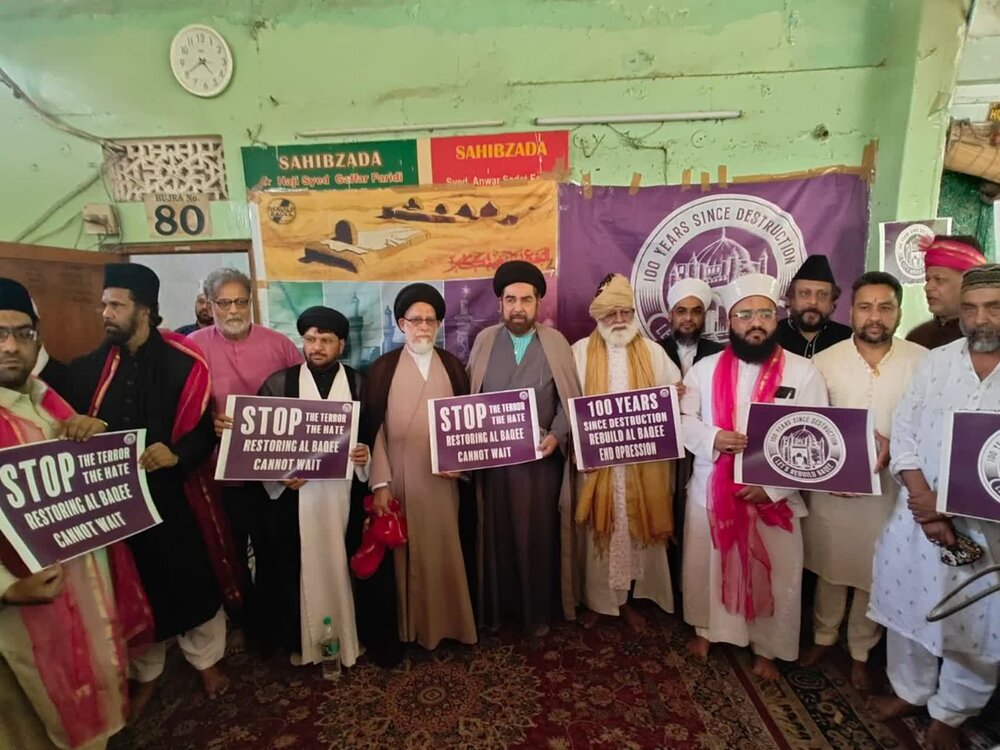AhlulBayt News Agency (ABNA): Indian Sufi leaders have intensified their plea to the Saudi Arabian government to restore Jannat al-Baqi, the sacred cemetery in Medina housing the graves of Prophet Muhammad's companions and family members. Despite decades of appeals, the graves remain unmarked after being demolished in the 1920s under Wahhabi doctrine.
A recent gathering at Ajmer, home to the revered Sufi shrine of Moinuddin Chisti, served as the platform for announcing plans to renew the appeal to Saudi authorities. However, the response from Riyadh has been silent thus far, leaving the fate of the historic site uncertain.
Jannat al-Baqi, established by the Prophet Muhammad himself, holds immense significance in Islamic history. Its destruction in the 1920s came amidst the rise of the Saud family, who adhered to Wahhabi principles forbidding tomb worship. The obliteration of the tombs, sanctioned by the new rulers, was a significant blow to the cultural and religious heritage of Islam.
Efforts to prompt the Saudi government to rebuild the tombs have repeatedly fallen on deaf ears. However, there's renewed hope for a change in policy.
"It's time to restore the tombs in Jannat al-Baqi," asserted Mansoor Khan, president of the Mumbai-based Sufi Islamic Board. "By allowing the restoration, the Crown Prince would signal his commitment to a more open and inclusive Saudi Arabia."
The plight of the cemetery has drawn attention from international pilgrims, who lament restricted access and the absence of monuments at the site. Reports of Sufi leaders facing arrest for attempting to pray near the graves highlight the ongoing tensions surrounding the issue.
"The cemetery stands barren, devoid of its historic significance. But with Ottoman-era maps indicating the location of the graves, there's a clear path to restoration," remarked Dr. Shafeeq Badr, Director of Al Baqi, the organization leading efforts for Jannat al-Baqi's revival.
"This is the 101st anniversary of the demolition of the tombs and we want to tell the world that Sufis, Shias, and other groups want the tombs to be restored," said Zia Azmi, another member of Al-Baqi Foundation.
Salman Rizvi of the Al-Baqi Foundation reiterated the readiness to assume responsibility for the restoration if the Saudi government remains unresponsive. "We are hopeful that Saudi Arabia will recognize the importance of preserving this sacred site and take the necessary steps to honor its heritage," he stated.
As calls for action grow louder, the fate of Jannat Al-Baqi hangs in the balance, symbolizing a broader struggle between tradition and progress in the heart of Islam's holiest lands.
......................
End/ 257

